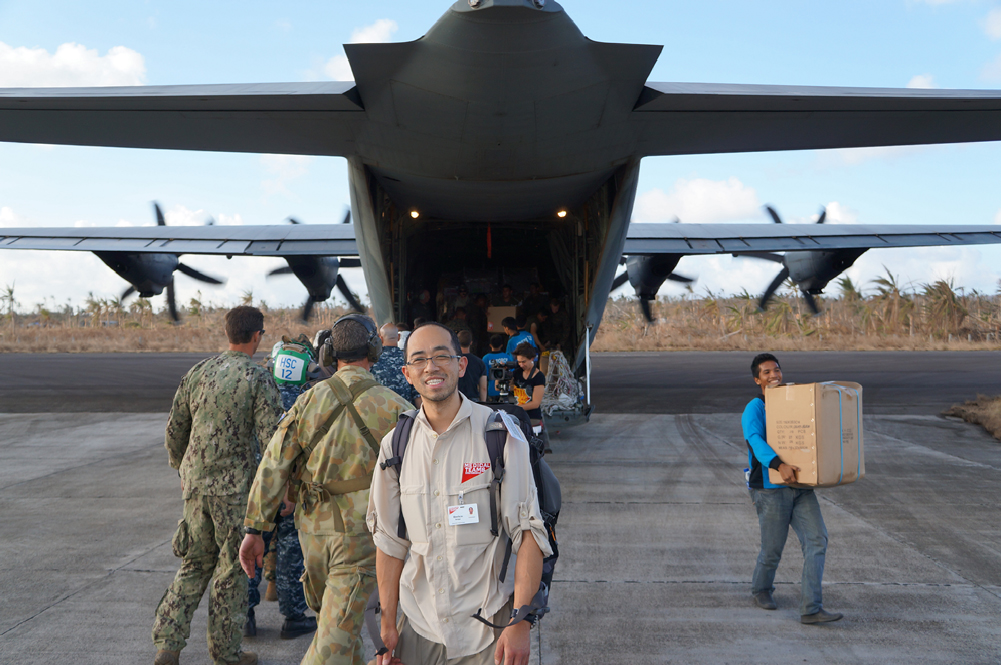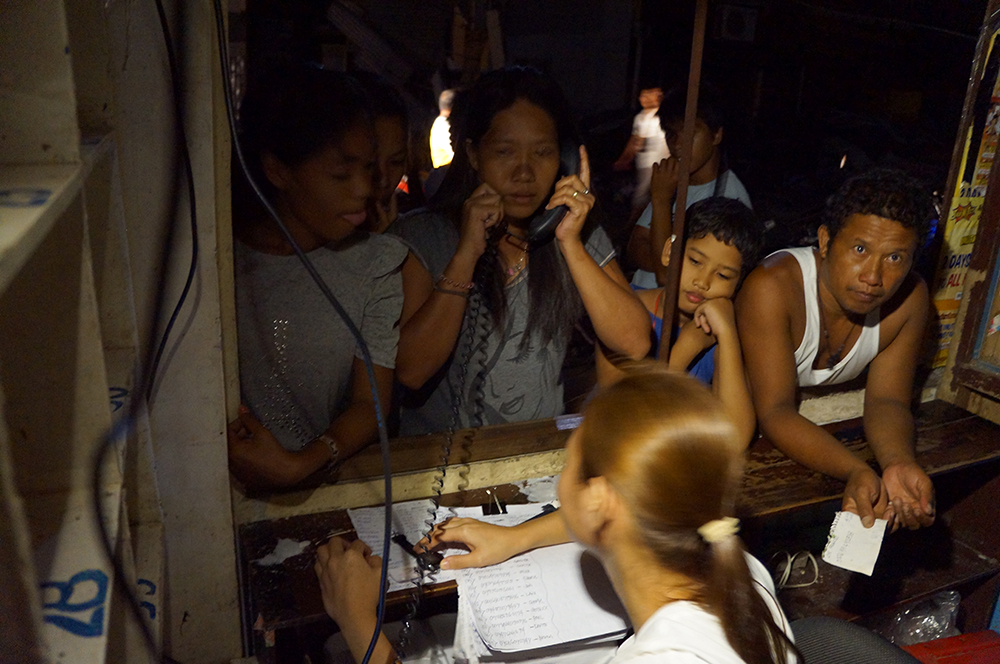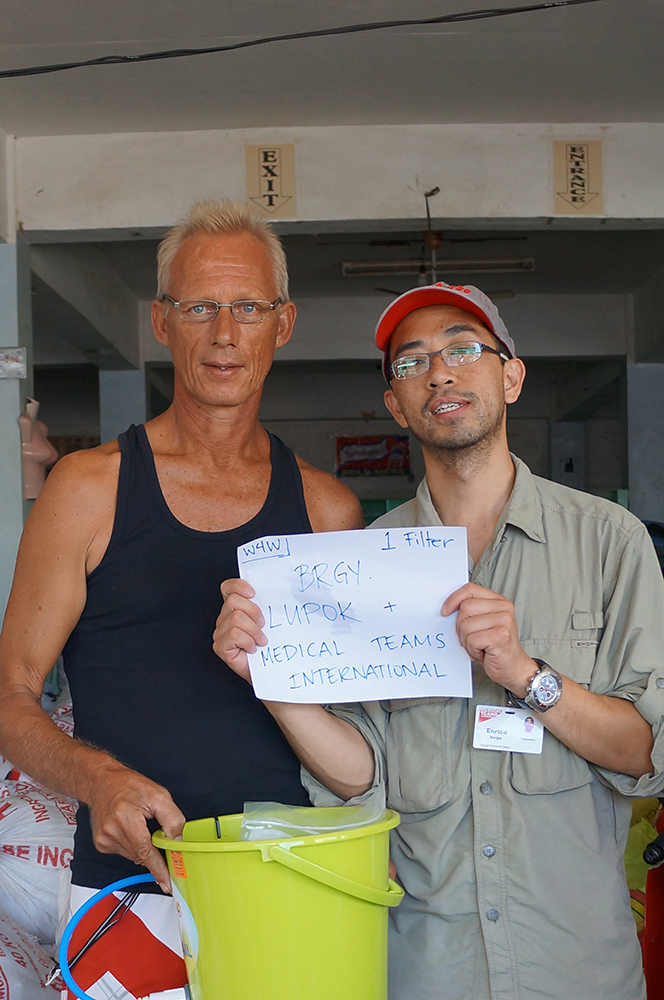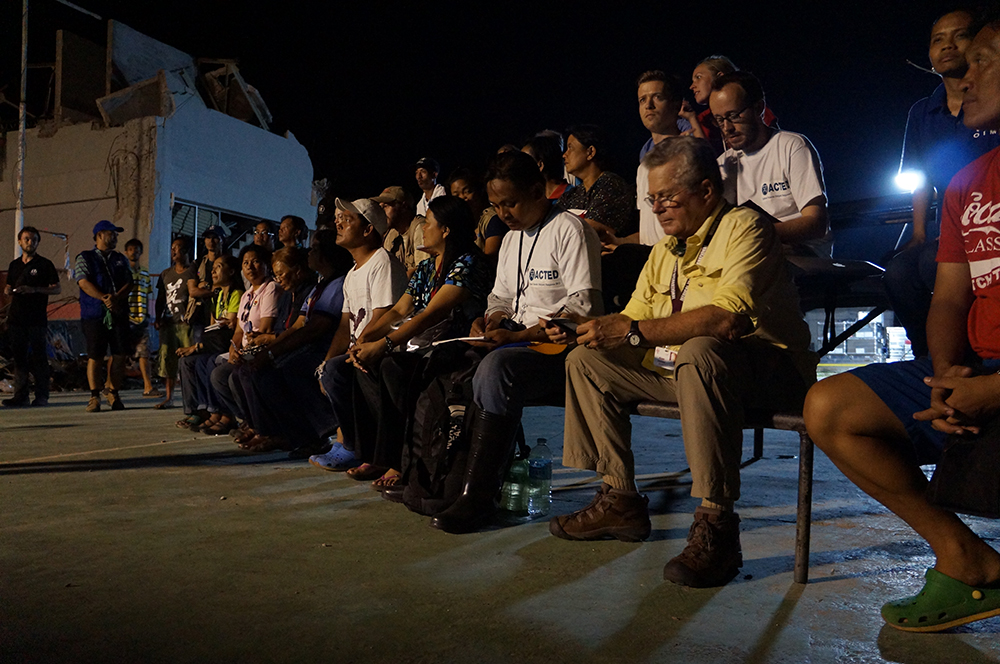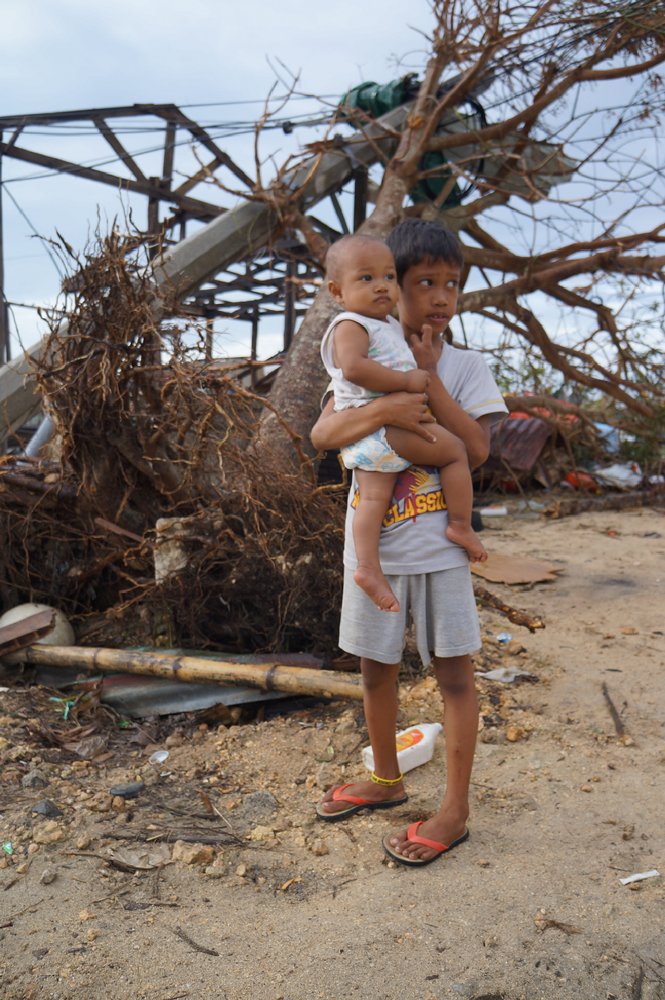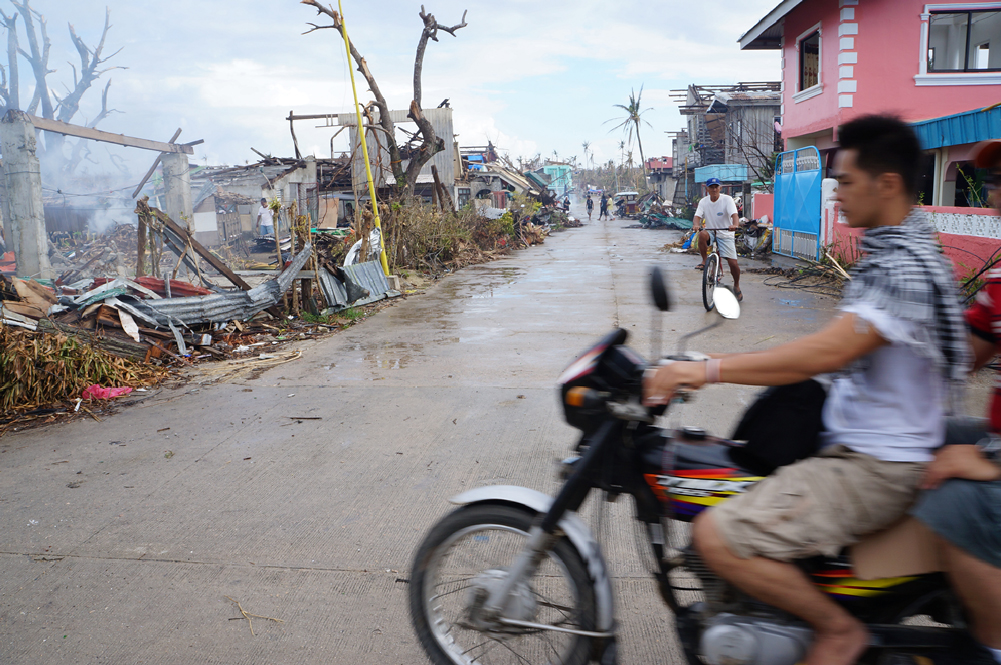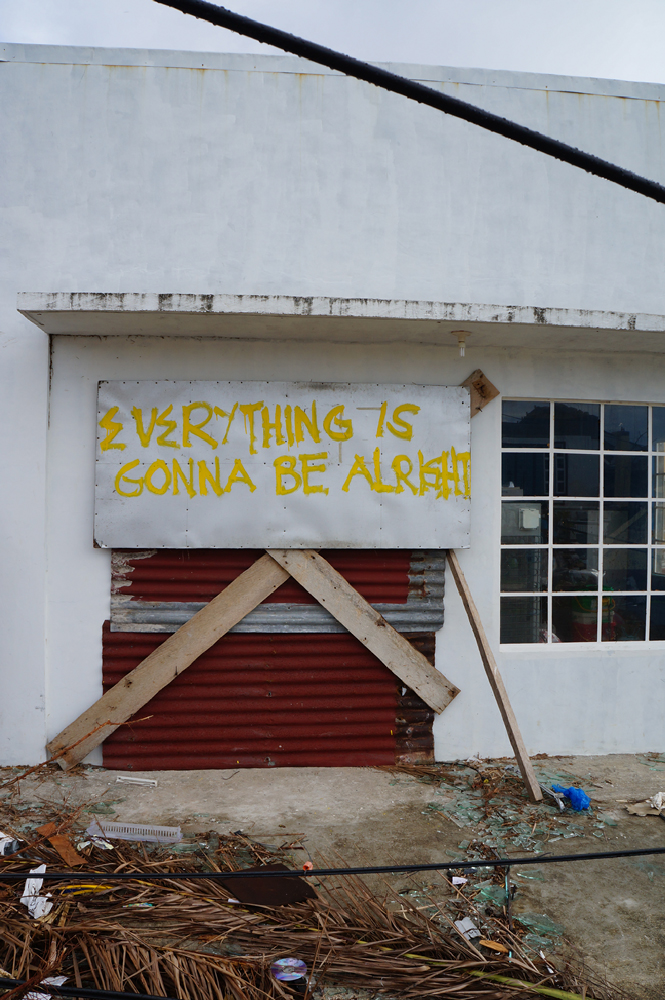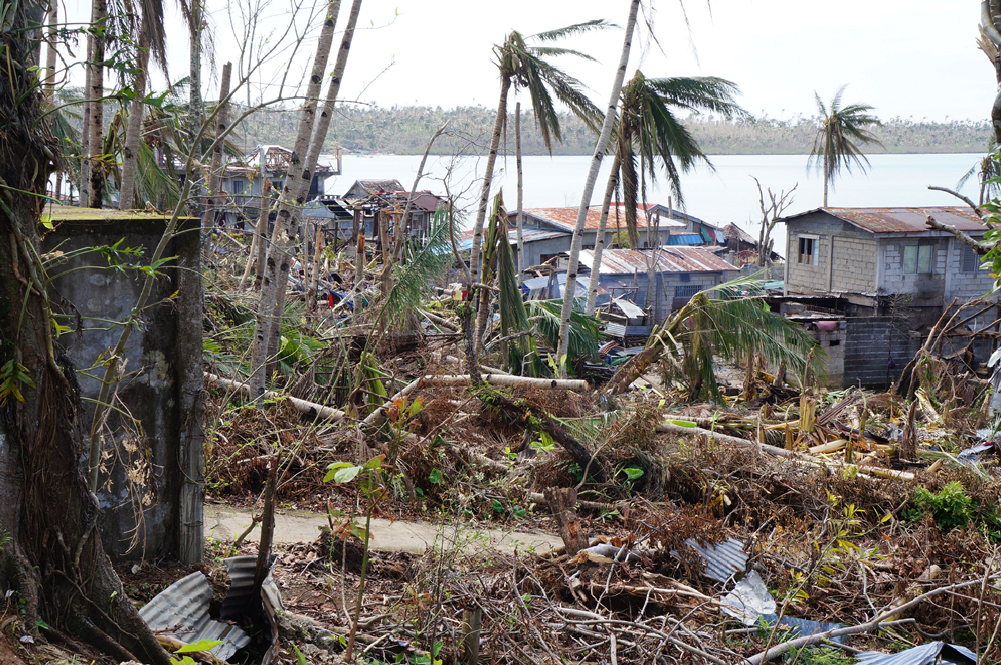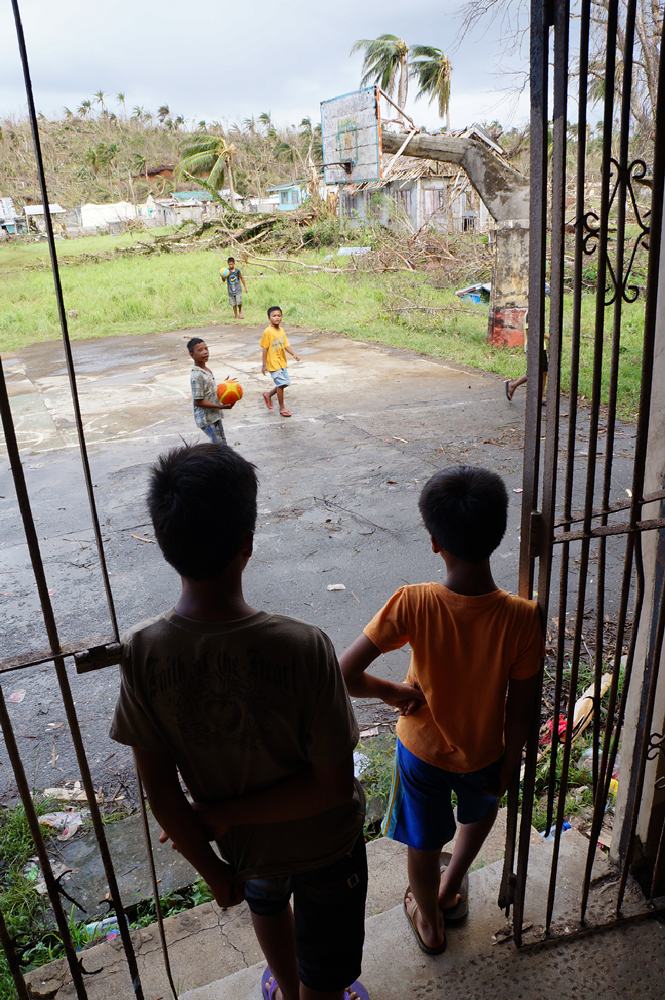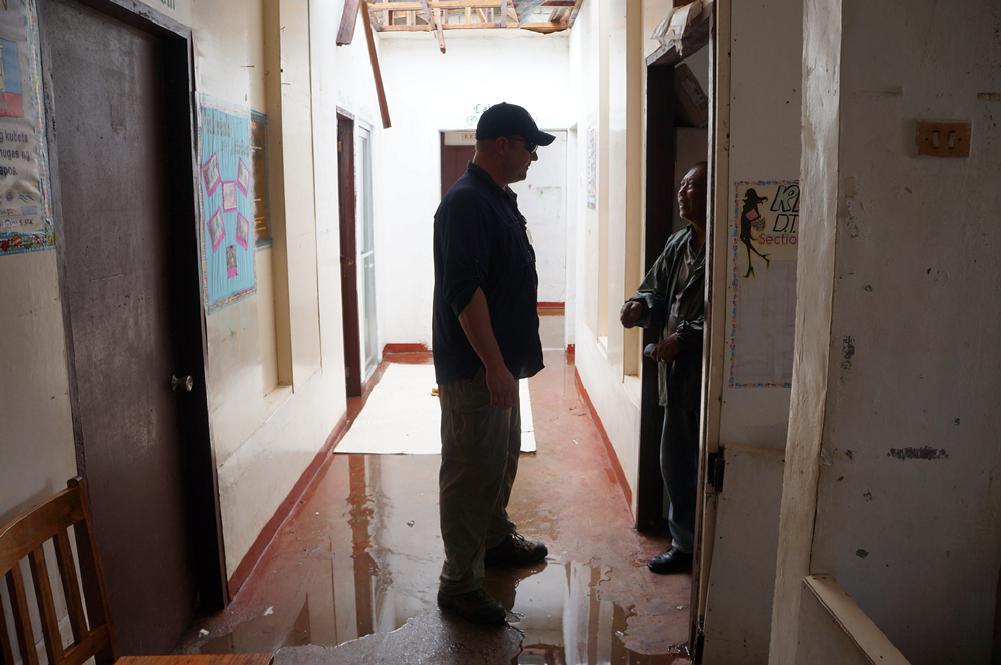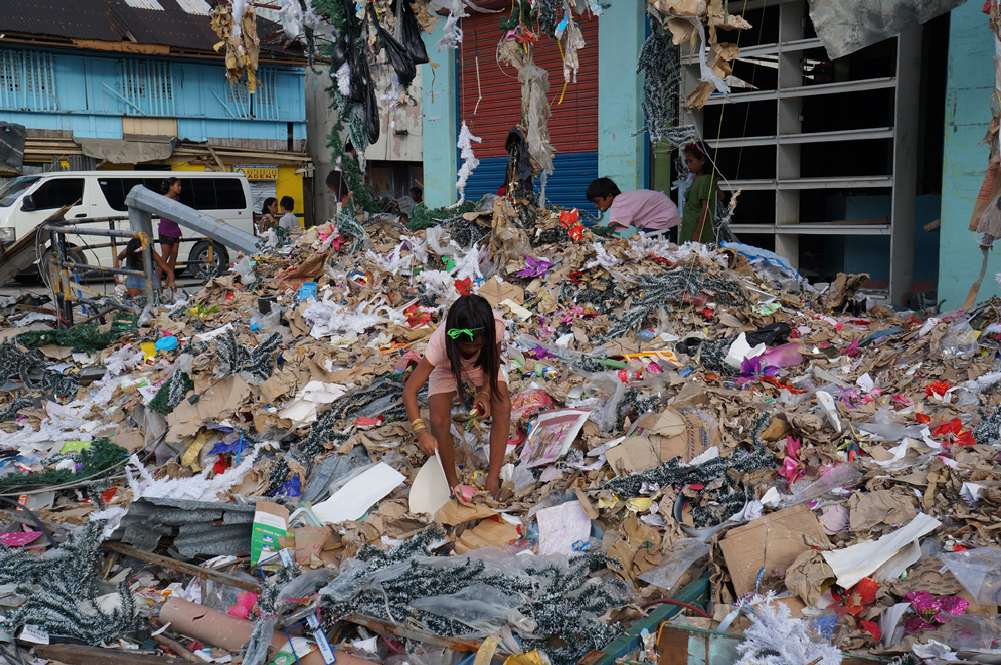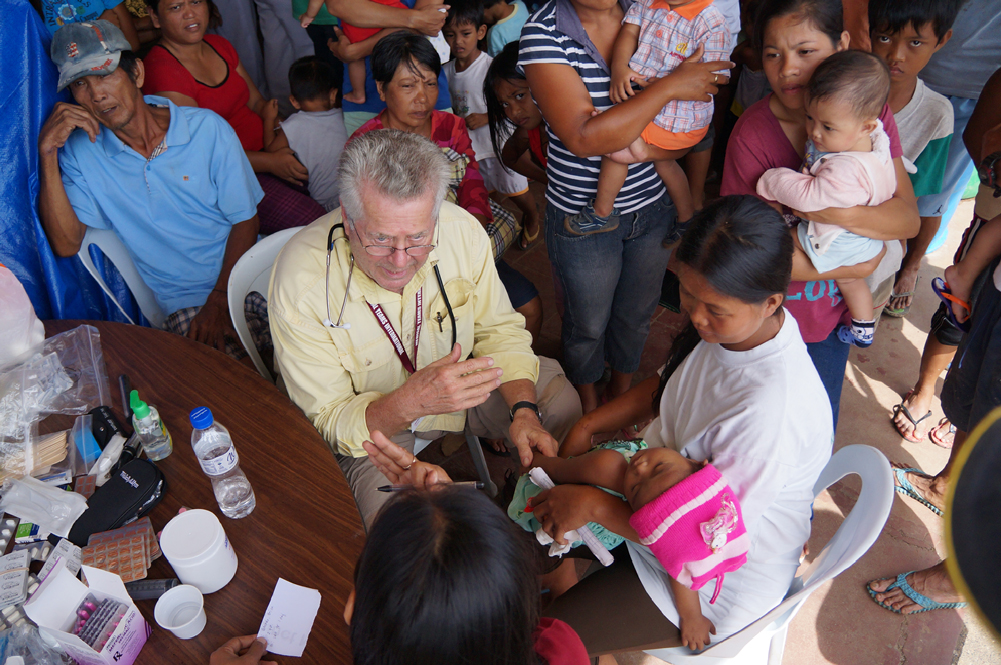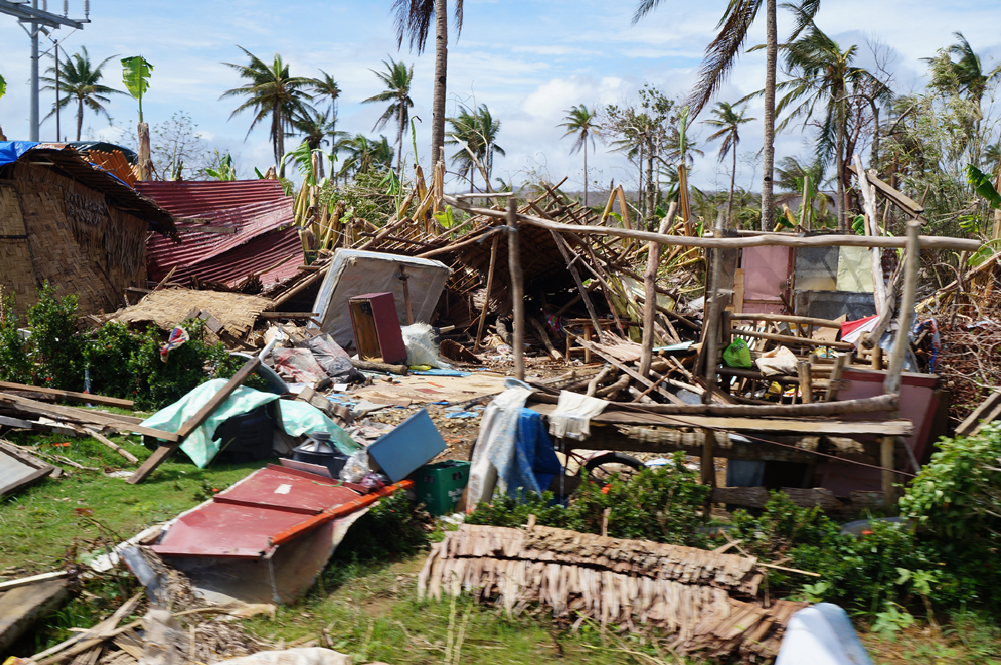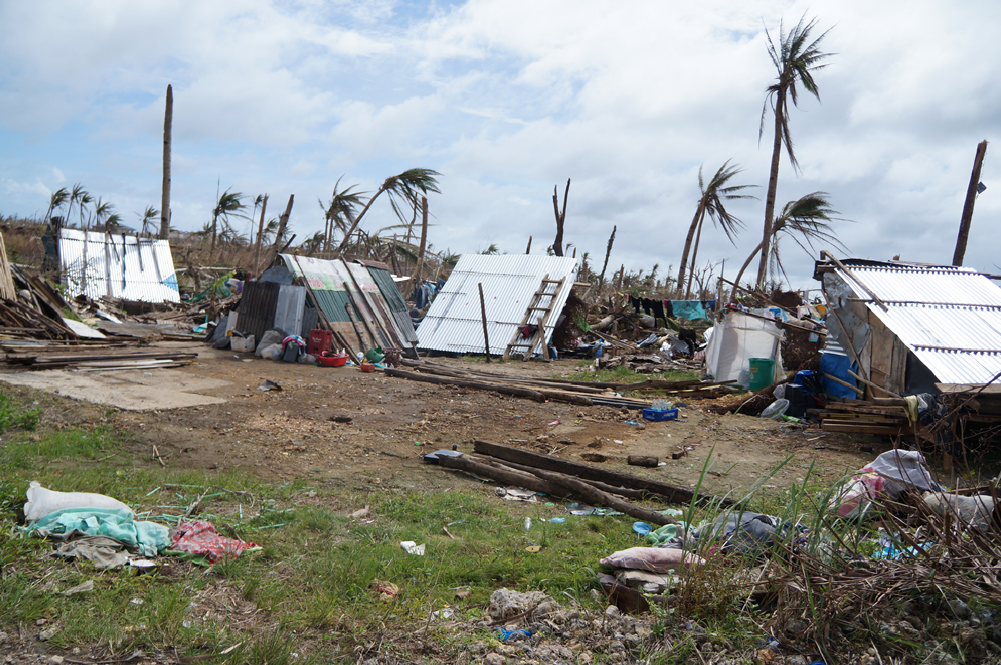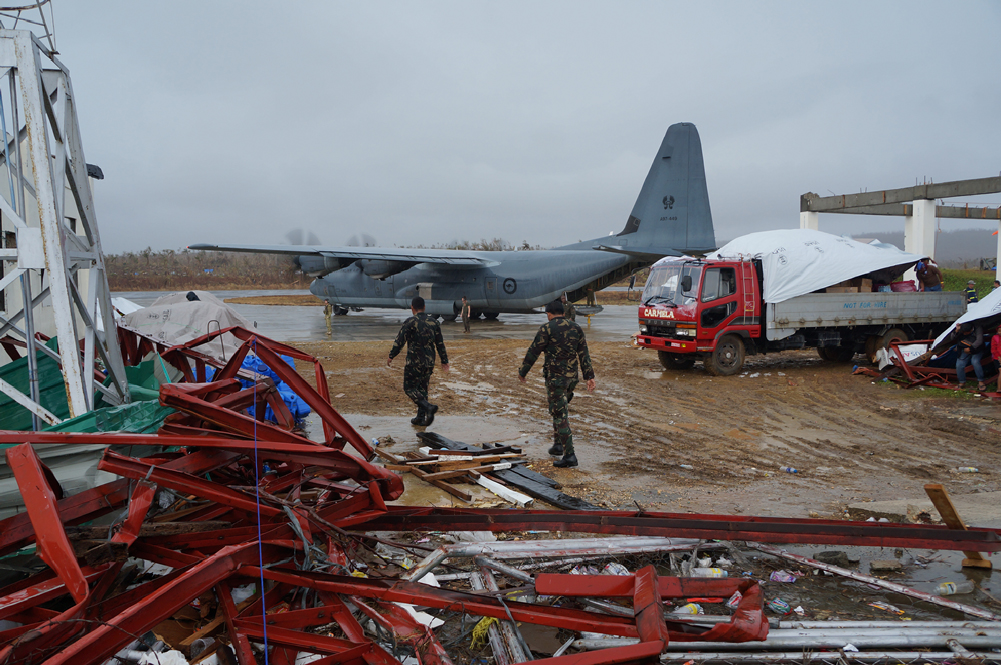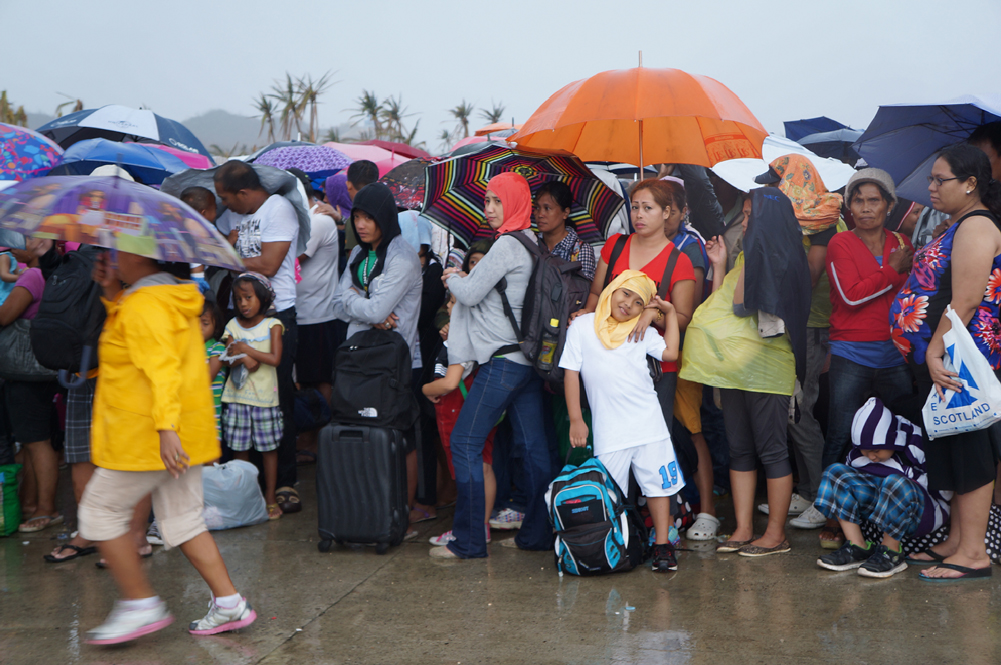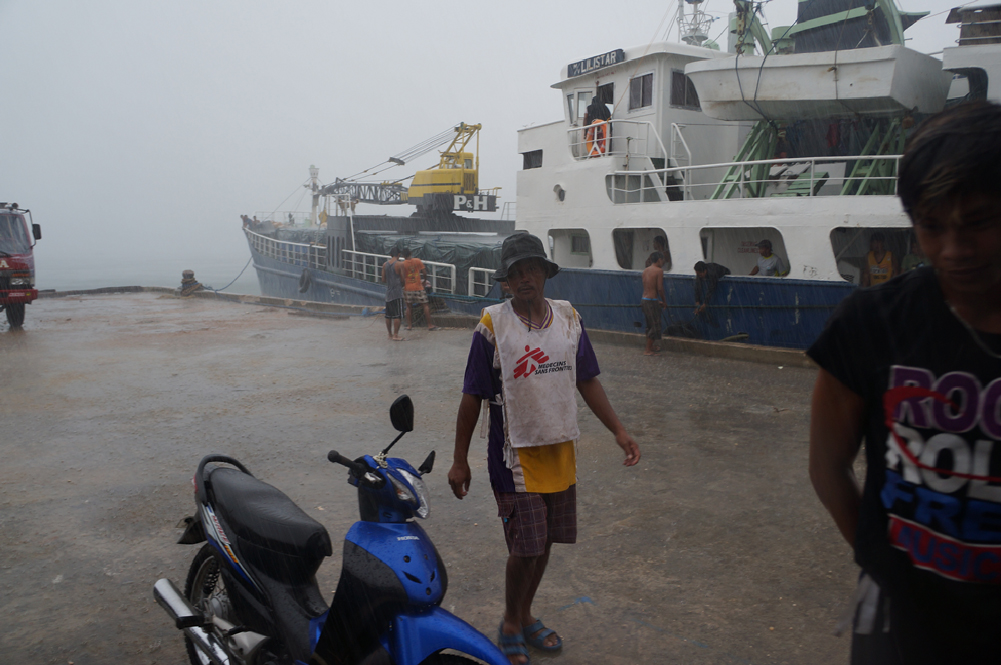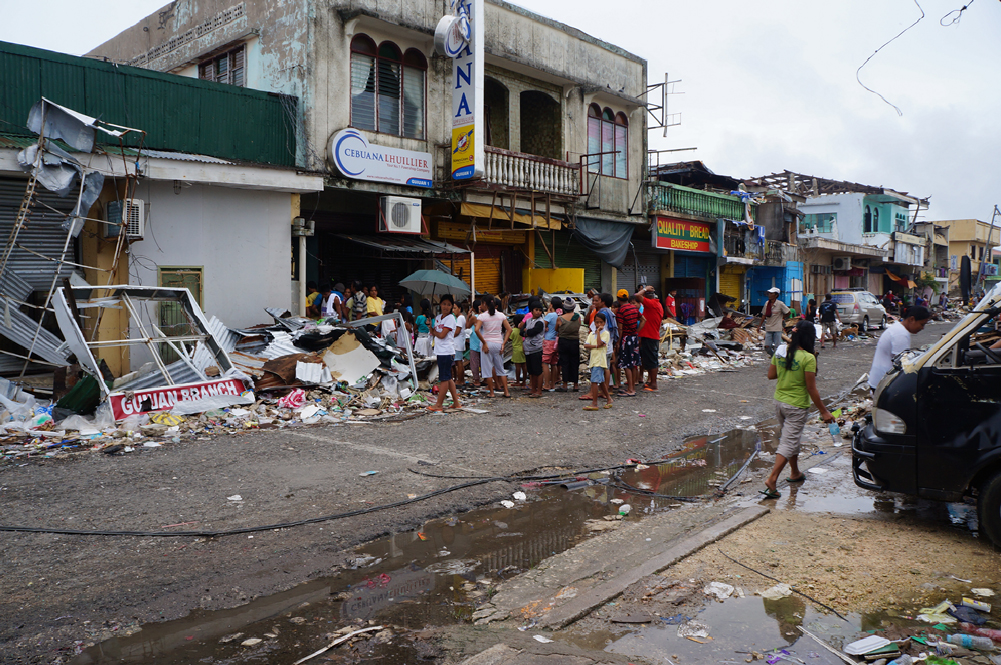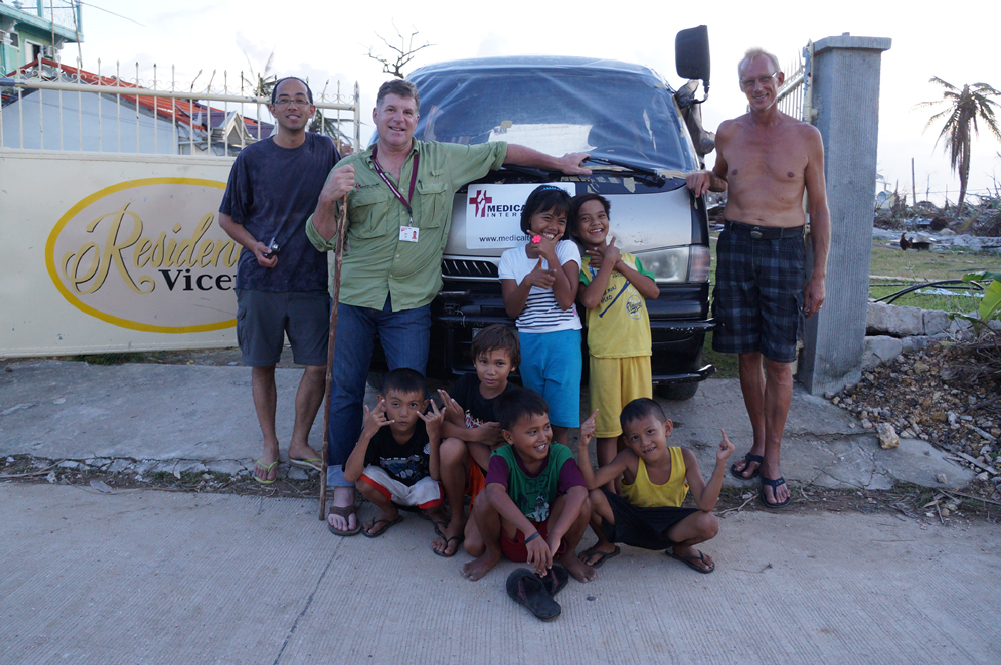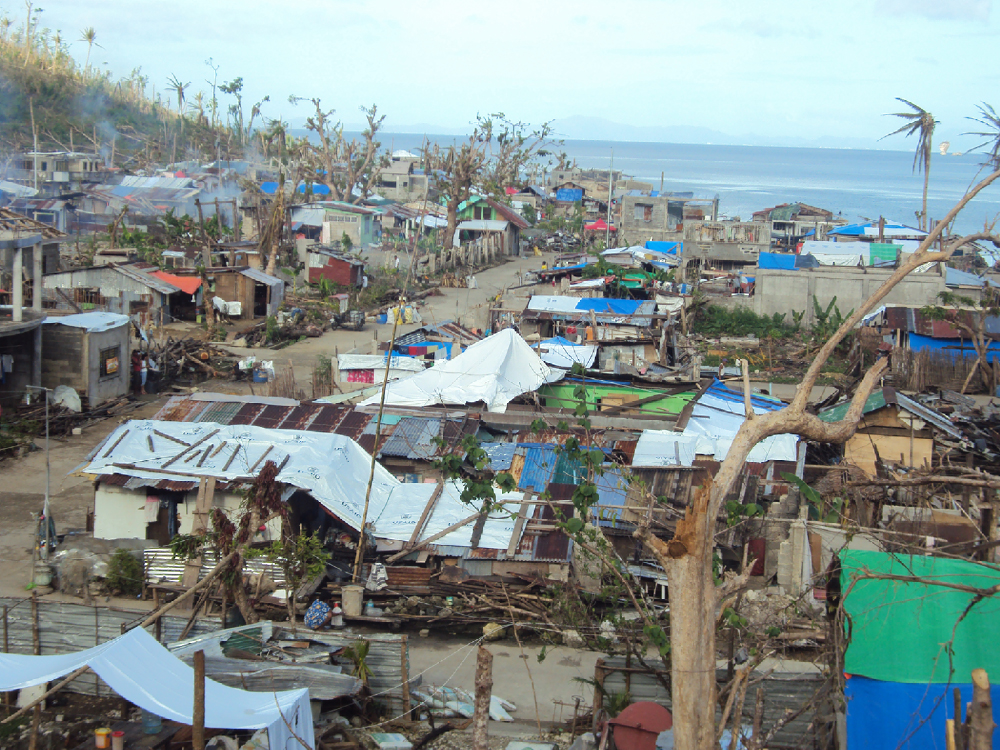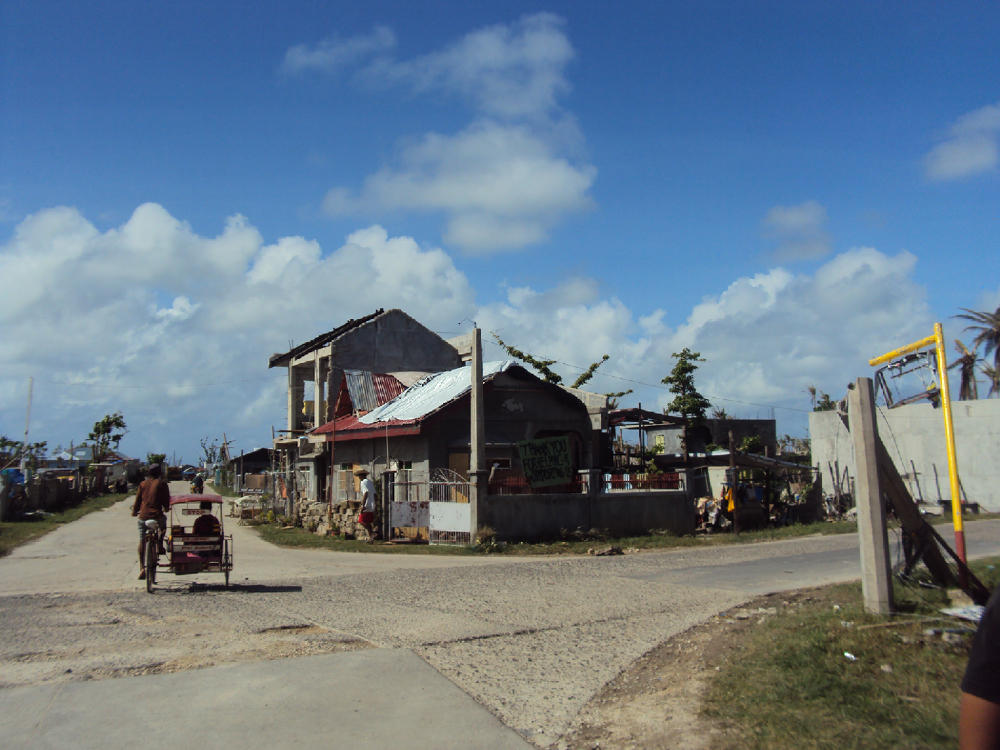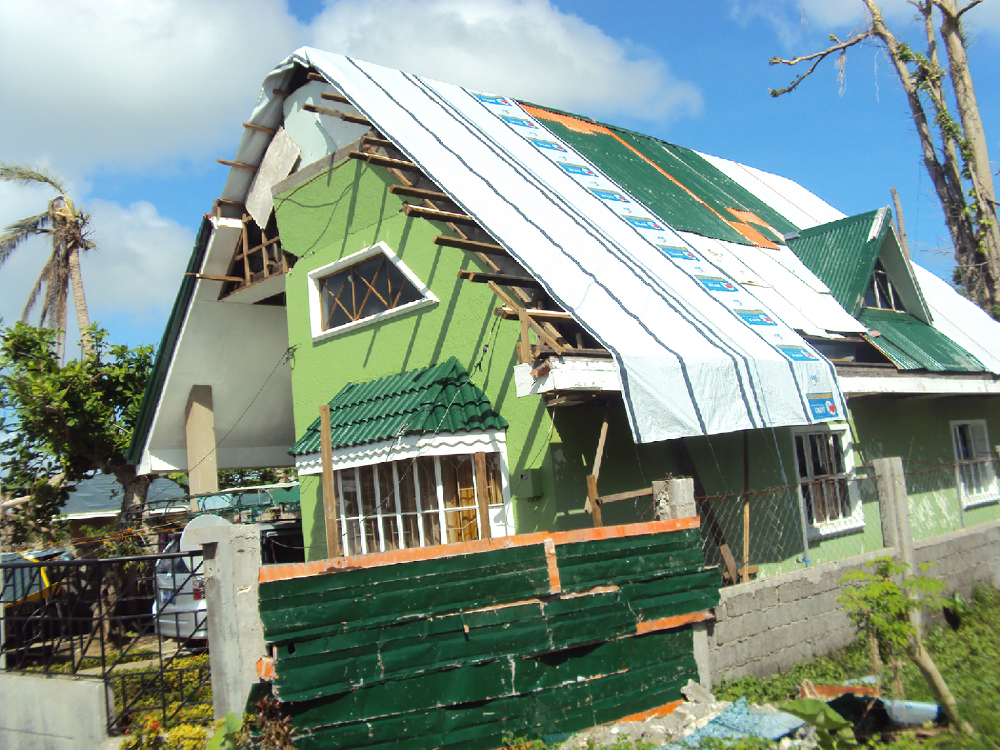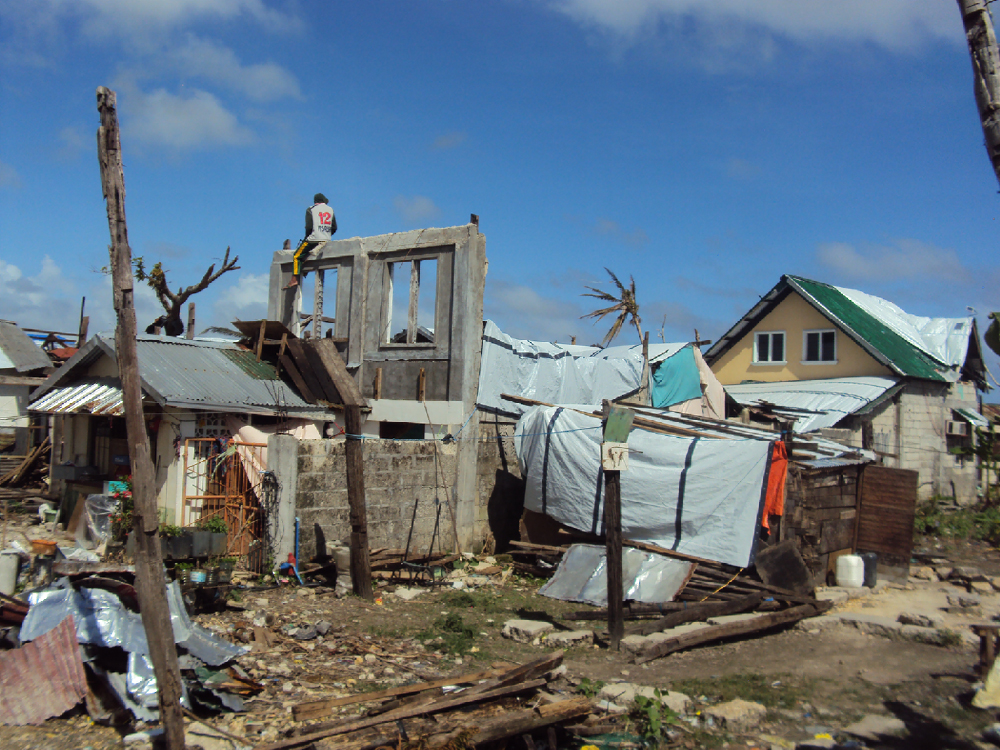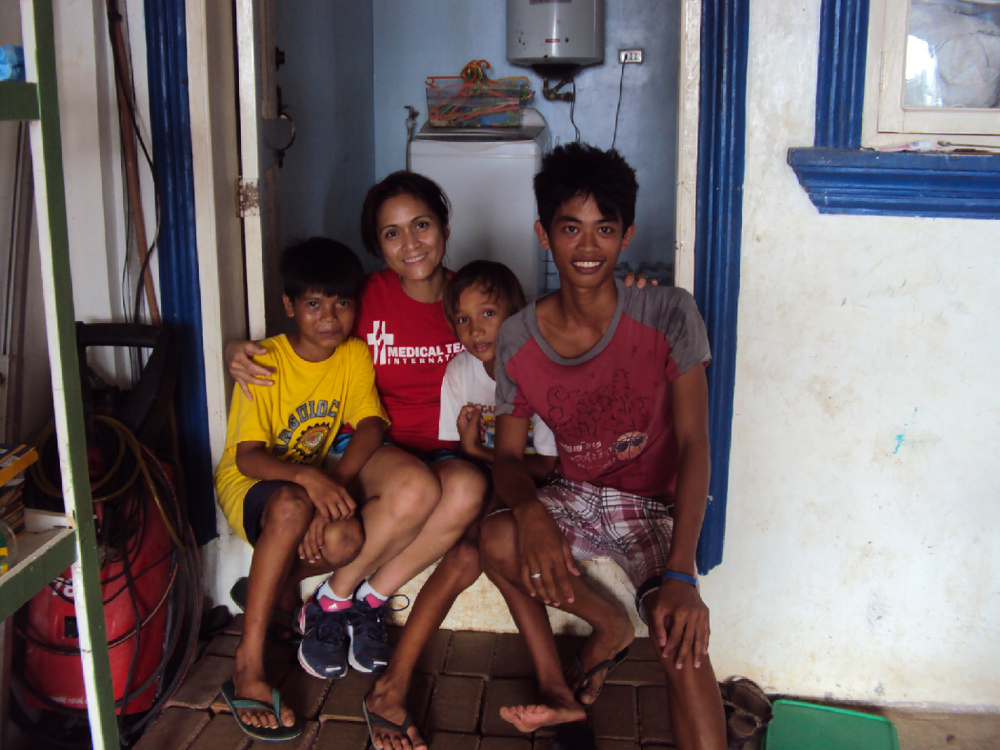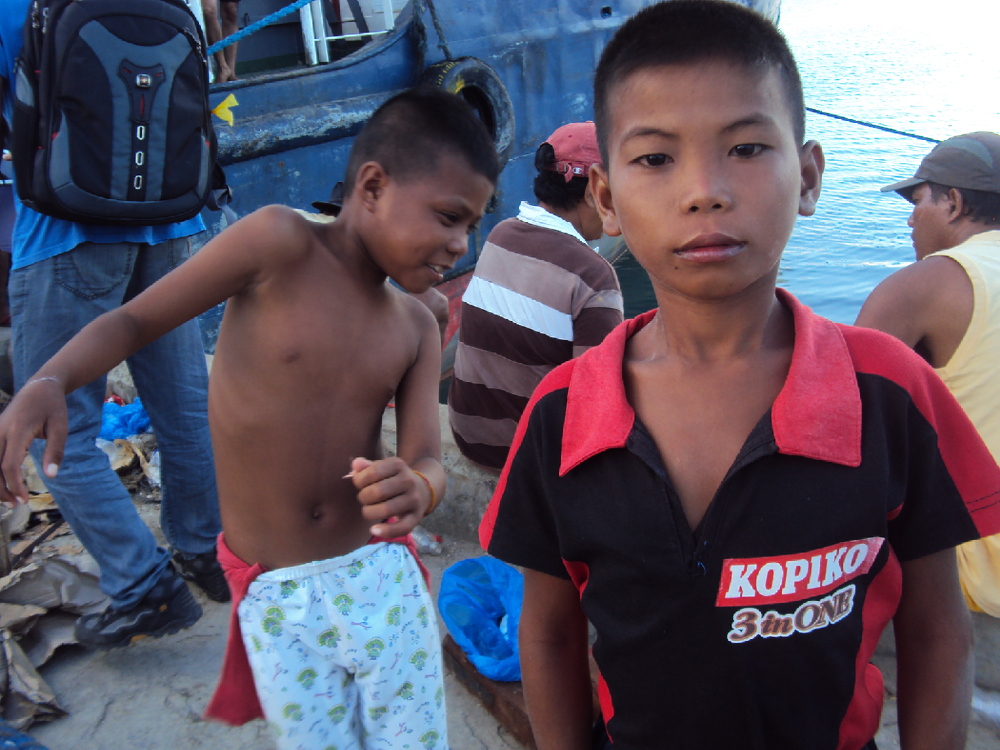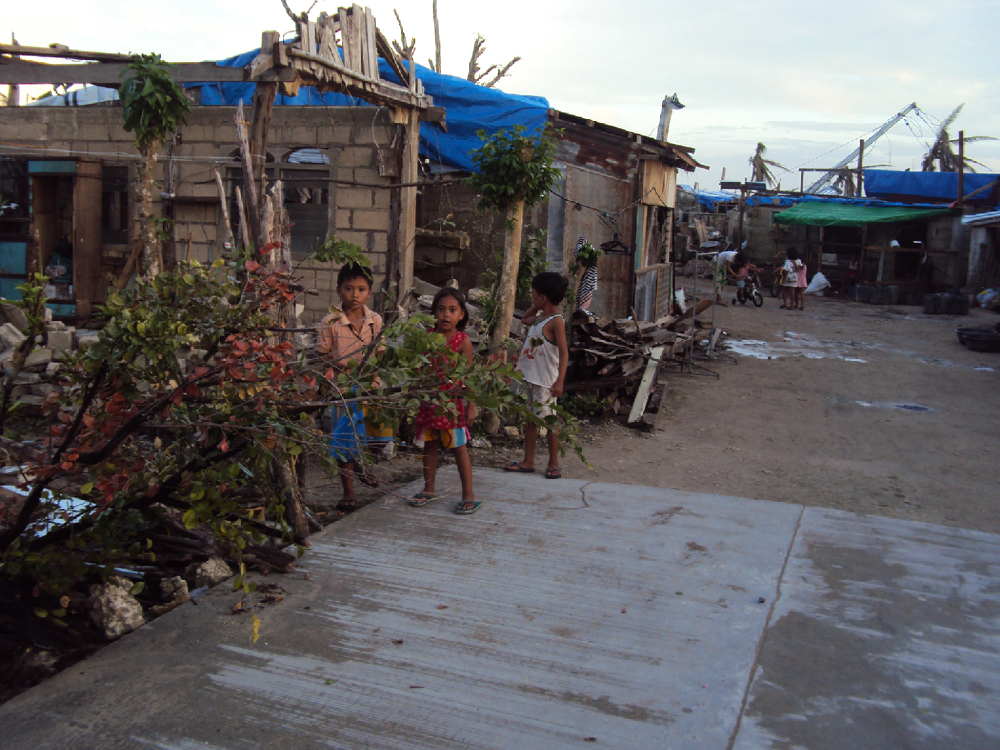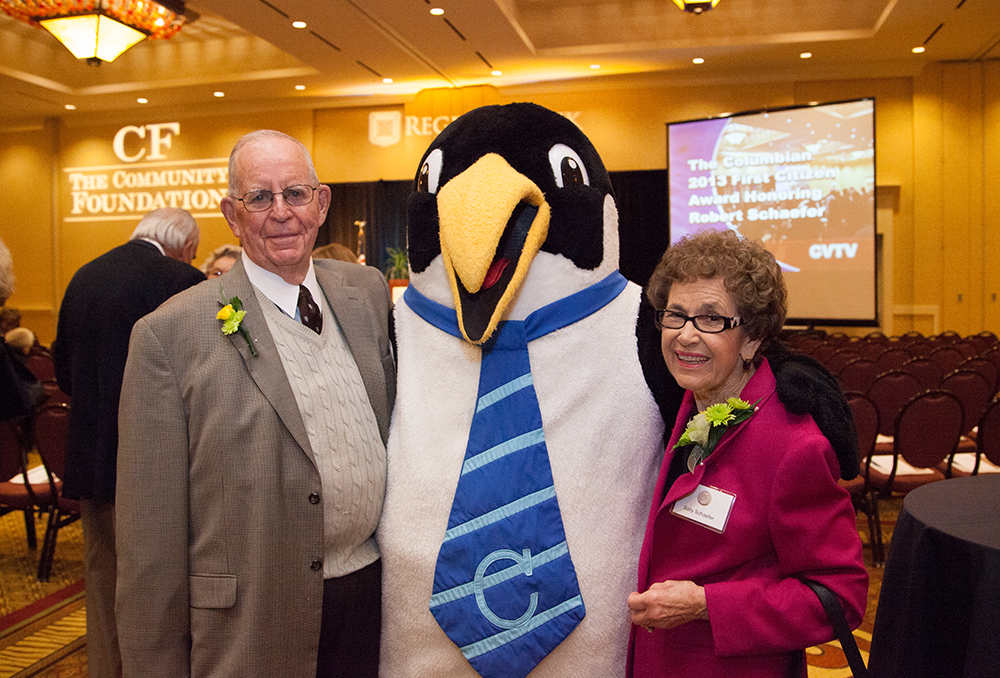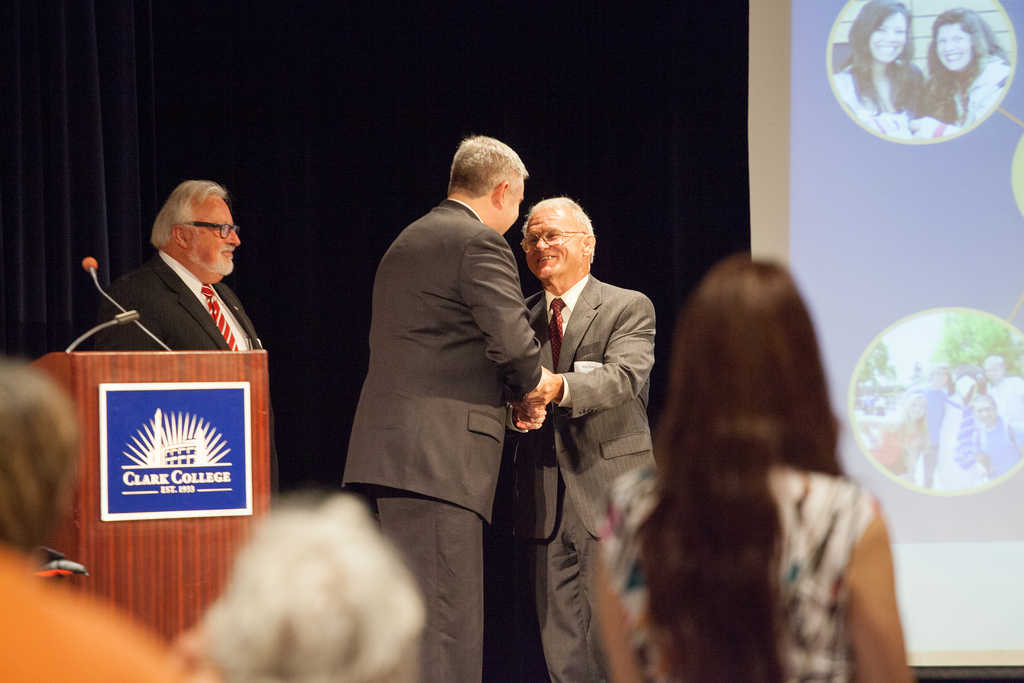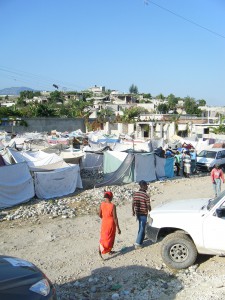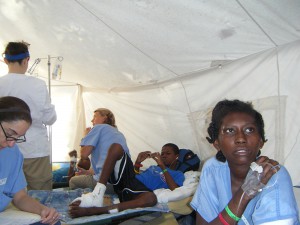After Haiyan
Enrico “Rico” Selga is a well-known figure to many at Clark College. Either they recognize him from his time as a nursing student here during the 1990s, or they saw him receive the Clark College Foundation’s Outstanding Alumni Award in 2010, or they’ve ordered a latte from him at one of the two coffee kiosks he and his wife, Jennifer, run on Clark’s main campus. However, not everyone knows what he does with his “off” hours: For years, Selga has volunteered with the church-based nonprofit Medical Teams International in areas stricken by disaster or conflict. He’s done so much of this work that MTI now sends him as a “First in Team” member, tasked with scouting the area and organizing resources before the rest of the medical team arrives. When the Philippines were hit by Super Typhoon Haiyan on November 8, 2013–demolishing buildings and killing thousands of people–Selga, who is originally from the Philippines, was one of the first volunteers to land in the hard-hit town of Guiuan. We wrote about Selga’s trip to treat earthquake victims in Haiti in a previous issue of Clark 24/7; here, Selga describes his latest experience in his own words.
Looking from the small window of the Australian Air Force C-130 airplane one week after Super Typhoon Haiyan, the community of Guiuan looked like it had been bombed. Houses were flattened; trees were uprooted or snapped in half. Once I was on the ground, I could also see that all the vehicles were damaged and that the people were wet and dirty. Locals told me that some people had resorted to eating dogs for food, while others had looted stores for food or items to trade for food. Survivors created shelters from scraps of wood or tin. Others used tarpaulins or plastic bags. During the nights, the wind would blow so hard that the rain went sideways. It was impossible to stay dry, and the combination of wetness, hunger, and thirst made it close to impossible to sleep.
Under normal conditions, Guiuan is a tropical paradise, filled with picturesque white sand beaches perfect for surfing and diving. But Haiyan left nothing standing. Houses were demolished beyond repair. Hotels and resorts were reduced to sticks and rubble. Wells that normally provide safe drinking water were contaminated. Fallen trees and power lines made the streets unpassable by car.
The children walked around the community with their parents, checking on their neighbors. I could hear the children telling their parents that they were hungry and thirsty. I tried my best to hold back my tears because I too have a child. I knew that children ages 6 months to 2 years would be particularly vulnerable because there was no milk or safe water to drink. Inevitably, many of them would get sick or die from the conditions. I cannot imagine how helpless their parents must feel. I know that if the roles were reversed, I too would be looting and stealing.
Yet these same people who looted were the first ones to share their food. Food rations were scarce, but people still shared them with their neighbors. Despite the catastrophe people found ways to smile and laugh. It was beautiful to observe the people banding together to help each other. And then one of them helped me.
On my first day in Guiuan, I met Klaus Engesvoll, the man who became my savior and best friend. I was sitting on the bench at Viva grocery, which had become the relief center of the town. There was a long line outside the looted grocery for the only functional satellite phone available to call the outside world. People were given 60 seconds to talk to someone. Each person was given three chances to dial a phone number. If nobody answered on the other side, the person lost his turn. The free telephone service was available from 7 a.m. to 7 p.m., but lines started forming at 5 a.m. and the last calls were made after 9 p.m. Listening to the conversations was heart-breaking. One woman narrated the story of how she lost her husband and children. Another woman kept on repeating, “Food is so hard.” For 60 seconds all she could muster up to say was, “Food is so hard.” It was painful to hear their 60-second stories of tragedy, but the ability to share their stories gave them hope that soon help would arrive. The last caller of the day was Klaus. He called his sister in Norway. After his call, he invited me and my colleague to stay in his house.
Klaus came to the Philippines from Norway on a vacation many years ago. He never left. Eventually, he married Amy, with whom he has two children who speak four languages fluently. Klaus told me how his family and 60 other people were saved by hiding in the laundry room and garage of his house. He said that if the wind had blown for another hour, they too might not have survived–and that when they came out after the storm had passed, they did not know if anyone else had.
The day after the storm, Amy cooked all their food and shared it with their neighbors, a move typical of her and Klaus’s generosity. After knowing me for only a day, Klaus invited me to stay in his house, where he and his family shared their scant amount of relief goods, water, and food with me. This was uncomfortable for me because I was supposed to be there providing help to them. In the end, our team would not have been able to function without his hospitality and willingness to share everything with us.
Klaus and I spent 24 hours a day together, brainstorming and helping the people of Guiuan. We would go to bed at midnight and stare at the ceiling, waiting for daylight so we could start working again. I would get up from my cot at 5:30 in the morning to go to his room, where I would see him crammed in his bed with Amy and their children–his eyes open. He would turn to me, nod, and get up without waking his family.
Around us, everything was sopping wet. In the living room at least six of his neighbors slept on wet sofas. Some nights, there were three inches of water all over the house. His stairs looked like a waterfall with the rain coming down hard from the second floor, where the roof had been torn off by the storm. Debris filled his house. Mud and grass peppered the walls and ceiling.
The first priority of each day was to find water, food, medications, and gasoline. Without gas, we could not send Doctor Alan out to see the patients. Without water and food, we were finished. In a disaster-hit community it is difficult to find the most basic necessities. Klaus and I had to go around town scavenging from other international aid agencies and the local market. We also needed to find a tarpaulin to cover Klaus’s blown-off roof–with more volunteers arriving soon, we needed a place for them to stay.
Once, we spent the whole day just begging for one liter of gas–and got none. We spent countless hours networking at United Nations Office for the Coordination of Humanitarian Affairs (OCHA) to procure gas and diesel. The diesel was important to keep our van moving. The van was by no means comfortable–it was missing a windshield and the engine had issues–but it was moving. I borrowed it from a neighbor on a handshake promise to pay him at a later date. This neighbor had three vans that at one point became shelter for 23 people.
On that same day, the first baby was born in a tent hospital run by Medecins Sans Frontieres (MSF). The crowd in the OCHA meeting clapped in jubilation. We had also scored enough tarpaulin to cover our house and one clinic. The tarpaulin was a gift from International Organization for Migration (IOM) and MSF. On this same day we also received a water filter from Guiuan Disaster Relief Coordination (GDRC). We could now filter enough water for 100 people daily for five years. It was a happy day for the community and for our organization. Klaus and I celebrated with a drink of rum, but neither Klaus nor I slept well because we both knew there was more work to be done.
The next day the carpenters worked at a feverish pace to finish putting tarpaulin on Klaus’s house. It was a dangerous job because the tarpaulin was slippery and any mistake would send them falling from a two-story house. Meanwhile, thanks to neighbors, the inside of his house was miraculously cleaned of wood, metal, and glass debris in five days.
There were other signs of hope that day–and new challenges. For the first week after the storm, there was no food for sale in the market. Almost two weeks later, on the Thursday that Klaus’s house got covered, the markets began selling more varied food again. Disappointingly, the prices for that food skyrocketed as more international aid workers (aka “rich foreigners”) arrived. The day before, we had bought a kilo of potatoes for $1.50; now a kilo cost $3.50. This is an unintended side effect of the arrival of the relief agencies, one felt most keenly by the locals. The average salary of an unskilled laborer is about $5 per day. I paid the men fixing the roof about $5 per day. I paid the foreman about $9 per day. These people cannot afford a 300-percent increase in food costs.
By Friday morning, we had welcomed 12 volunteer doctors, nurses, and paramedics. We were in full capacity to treat patients. Doctor Alan now had a complete team with him when he went out to the villages. Our team immediately went to work treating patients in Guiuan, Mercedes, and Salcedo. In one day, we were able to see more than 200 patients and provided them with essential medications.
My job with the ‘First In Team’ was finished. We had shelter, food, water, volunteers and clinics. This was good news, but my heart sank because it also meant that soon I would be sent back home. Klaus felt it too. He kept saying, “It will be strange without you, Rico.” For nearly two weeks, I had spent my days and nights with Klaus. He had an uncanny ability to make friends and get things done. I admired his strength and perseverance, growing to love him like a brother. I knew that he would give his life for me–as I would for him.
Before departing I asked Klaus, “What are you going to do after all of this is done?” He told me that he was not leaving, that Guiuan is forever his home. But then he added, “I do not know, Rico. For the first time in my life, I care only about others. I do not care what happens to me. I have never felt this way before. I will only leave if my children cannot go to school. If the schools are not rebuilt, I must return to Norway for my children.” I could see in his eyes that he is deeply worried. I felt guilty for leaving him and going home.
I believe in the power of dreams. It will triumph over adversity. Dreams have the power to transform despair into hope. Dreams keep us taking the next step forward. Dreams turn the impossible into reality. Today I dream of rebuilding a school. I have never rebuilt a school. This is a dream I cannot accomplish without help. I need a small miracle. Twenty-three years after evacuating my home in a US Air Force C-130 plane due to an earthquake, and after 13 years of volunteering in disaster-stricken and war-torn areas like Kosovo, Liberia, Uganda, and Haiti, I am needed now in the land of my bones, Philippines.
Photos: Rico and Jennifer Selga
